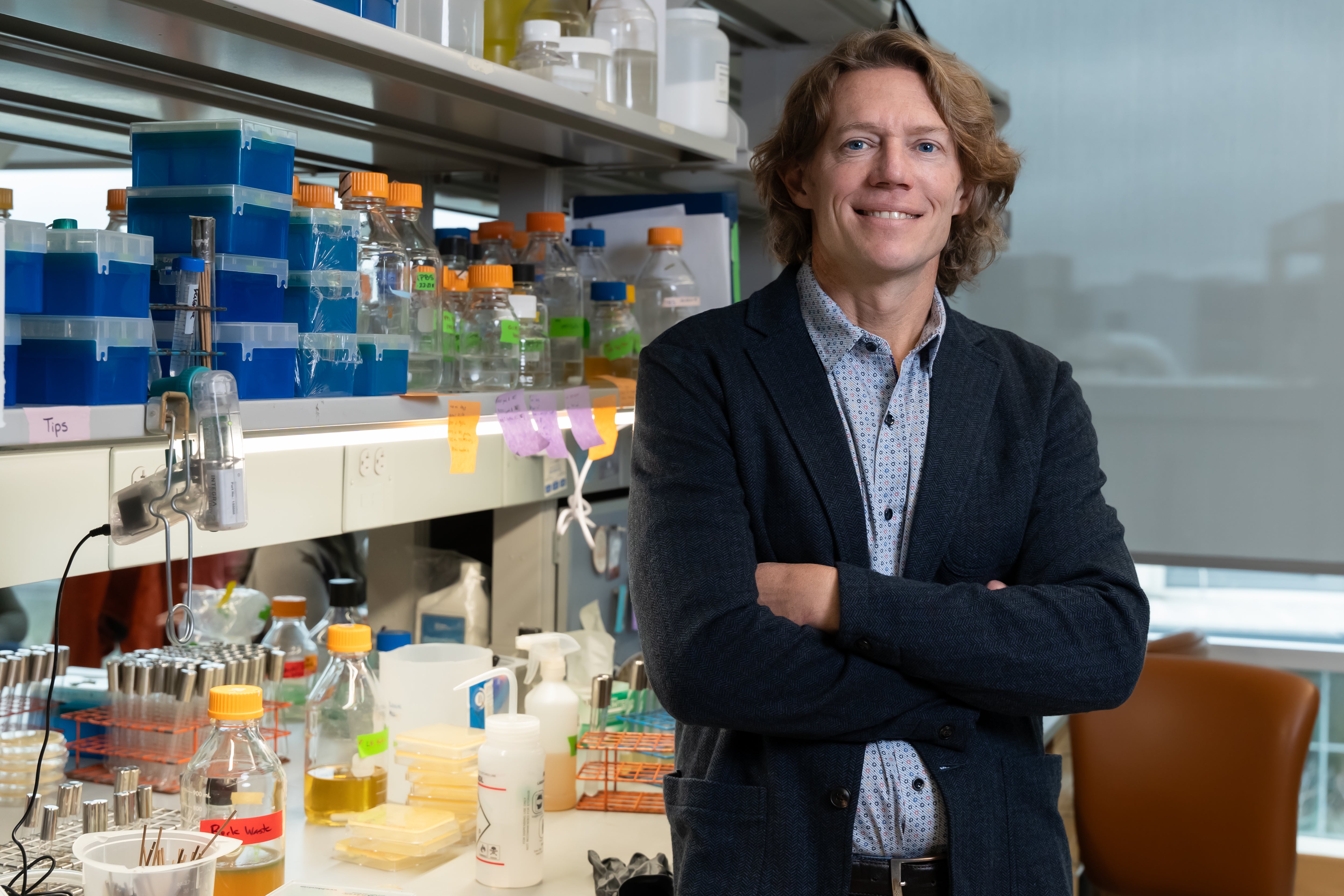
By Kat Procyk
Photography by Rayni Shiring/University of Pittsburgh
Vaughn Cooper, professor of microbiology and molecular genetics, University of Pittsburgh School of Medicine, began his new role as president-elect on the board of directors for the American Society for Microbiology (ASM), the world’s oldest and largest single life science membership organization, on July 1.
As president-elect, Cooper will help shape the board’s agenda, advise the society’s staff and volunteer committees on strategic vision and serve as a spokesperson for the organization. ASM promotes and advances the world of microbial science by helping scientists connect, make groundbreaking discoveries and work together to solve many of the world’s greatest challenges.
“One of the greatest rewards of volunteer leadership at ASM is the opportunity to support and empower microbiologists at every stage,” Cooper said. “I believe we are all population biologists, capable of leading efforts to understand life’s diversity across scales. At the same time, embracing single-cell technologies opens new frontiers in engineering and synthetic biology. No other field holds more promise for hands-on learning and discovery in education. I hope these perspectives inspire us to create initiatives that shape and support the next generation of microbiologists.”
Cooper will assume the role of president on June 30, 2027. Cooper also serves as the chair of ASM’s publishing committee and represents ASM on the Coalition for the Life Sciences, a strategic group representing several life science organizations in interactions with the federal government.
ASM fosters progress in microbial sciences by hosting conferences, producing publications, offering certifications and delivering educational programs and advocacy initiatives. It strengthens global laboratory capabilities through targeted training and resource development, while connecting scientists across academic, industrial and clinical fields. ASM also works to broaden public awareness and appreciation for microbial science across diverse audiences.
